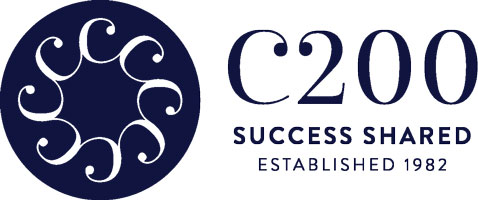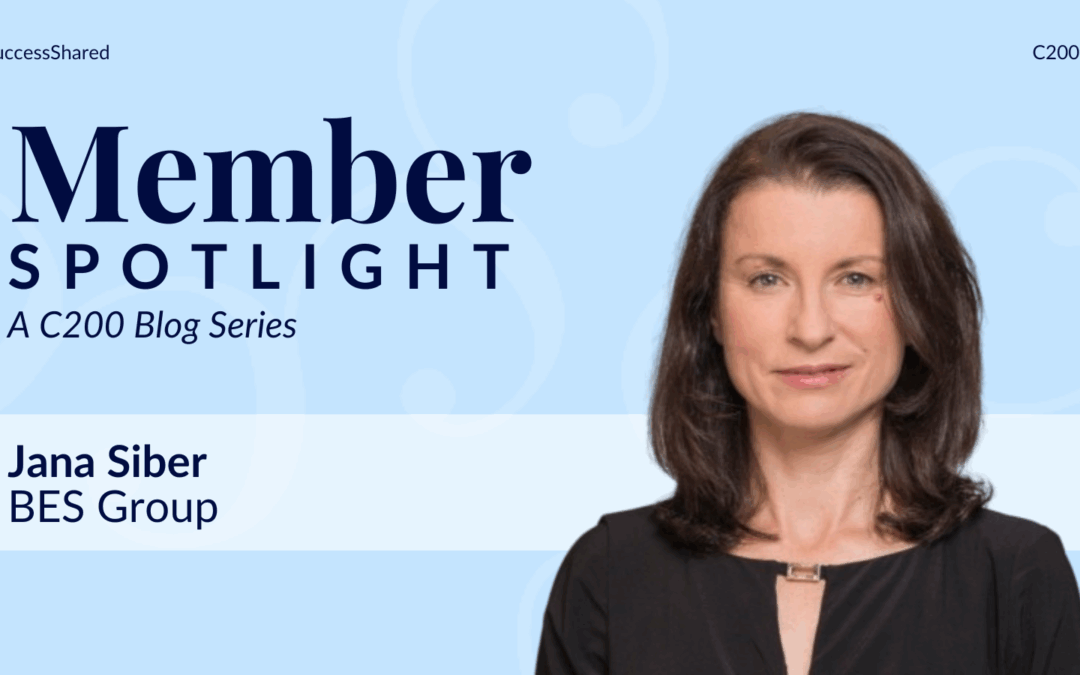
by Eva Glassman | Sep 11, 2025 | Blog, Featured
Jana Siber is a Group CEO for BES Group, a company providing risk management services for systems and operations to over 35,000 global customers. With an initial background in consulting, Jana developed an expertise in leading several companies in public transportation, energy, and engineering. Between work and leisure, Jana has visited nearly one hundred countries and enjoys traveling with her family. Jana has been a Member of C200 since 2025.
Eva Glassman: You recently started a new role as a Group CEO for BES Group. What’s something new about this role you’re looking forward to exploring?
Jana Siber: I am very excited about my new role. While I am very familiar with transformations of businesses with large frontline workforces, this is the first time I am facing this challenge within a private-equity owned business, which brings a whole set of new types of stakeholders as well as a much faster-paced dynamics.
EG: What has your career journey been like?
JS: I grew up in the Czech Republic, then came to the UK in my early twenties to study English and ended up staying to study Psychology at Oxford. When I was at university, I picked up a leaflet about management consulting, and I thought this was a fantastic opportunity for someone who doesn’t really know what they want to be.
When I graduated, I started my career as a management consultant with Booz Allen Hamilton and Accenture before going back to school to get my MBA at London Business School. Coming out of business school, I decided to go back to consulting and joined Bain, where I spent the next eight years.
After Bain, I joined Avis Budget Group—initially as a commercial strategy director and then going on to manage the franchise network of Avis Budget, initially EMEA. Eventually, I added Asia Pacific as well as Latin America to the company portfolio.
After about five years of managing the global franchise network, which is largely a commercial role, I really wanted to have full P&L responsibility. So, I joined Arriva, which is a UK-based public transport company with a heavy European presence. I became a Managing Director of Mainland Europe with a portfolio of fourteen countries. I started building on the skillset of managing large, frontline dispersed workforces.
This theme continued into my next job before my current role, which was Managing Director for British Gas Services. British Gas is the largest provider of heating solutions and services, with a workforce about 15,000—about half of which are gas engineers who install and provide maintenance and servicing for boilers, heat pumps, and other specialized equipment.
I came into British Gas about four years ago, and my remit was to fix the business; it was losing money, employee engagement was low, and customer complains very high. It took me just over three years to turn the business around both operationally and commercially. By the time I was ready for my next challenge, the business was profitable and growing again.
EG: You mentioned earlier that you didn’t know what you wanted to do for your career when you studied at Oxford. What are some lessons you learned throughout your career that helped you determine your career trajectory?
JS: I really had no clue what I wanted to be. I knew I wanted to go into business, but as a psychology grad, you don’t really know what business is. What attracted me to management consulting is that you don’t need to decide what you want to be; you work on different projects with different companies in different industries. I enjoyed getting in-depth experience in various, disparate areas of business.
I went back to school for my MBA, because I had a much better idea of what business is and wanted a more holistic view of how it is actually run. In particular, I was curious about the financial side and the impact you can have as a P&L manager.
During my MBA, I became torn between staying in consulting or going into industry. What I liked about consulting is that you get right in the room with the CEO talking global strategy; meanwhile, if I were to go into industry, I didn’t want to start quite low down in the organization.
My decision to go into industry happened during my eight years with Bain after my MBA. I realized that the larger the team, the longer the project—I enjoyed the work even more. I could see the impact I was making. It was a sure sign that I wanted to own a piece of business, to see and manage the results—not just implement the strategies.
Over the years, I became aware of my strengths: the combination of strategic thinking and people management. It wasn’t a sudden revelation but a slow discovery over the years. It helped me navigate which way I wanted to go.
Once I went into industry, I very quickly gathered I wanted to work in a CEO role. I asked myself: What does a good CEO need to have as a toolkit? From there, I selected roles that helped me develop that toolkit.
For example, managing hundreds of franchises across the world at Avis gave me a fantastic commercial toolkit. I learned how to deal with different cultures and influence organizations that didn’t necessarily report to me. While it was great strategic and commercial experience, I still felt lacking in operations, which is why I eventually left to join Arriva as Managing Director. There, I grew and managed a portfolio of fourteen Mainland European countries while looking at capital allocation and pressure testing strategies. On the people management side, I was building and swapping teams in various countries.
At this point, the last bit of experience I felt I needed was closeness to the frontline and to operations. That’s why my role at British Gas was so interesting to me; it allowed me to showcase my skills in strategic visions, people management, and execution.
EG: It’s refreshing to hear that there wasn’t a single moment in your career journey where you figured everything out. Learning what you want along the way, over a long period of time, is probably more common than we think—and something we should praise and encourage more.
JS: My daughter is at university at the moment, and she doesn’t know what she wants to be—and that’s absolutely okay. I always tell her that it’s okay to just try things; it doesn’t mean that you will end up doing it forever, but you won’t know whether it’s for you if you don’t try. While there are a few people who are fortunate enough to know what they wanted to be since they were nine, they’re in the minority.
EG: How did you become a C200 Member? What drew you to the organization?
JS: A CEO friend of mine and I were out to lunch with another colleague of ours, and we were talking about the different professional networks which we were a part of. This colleague mentioned C200, and I was immediately interested in terms of it being a group specifically for P&L leaders.
It’s a very specific experience to be a woman in a P&L ownership position, so I’m very eager to connect with more of these women. A lot of other networks I’ve been a member of also include functional leaders or skew heavily toward a particular industry or position. C200 has Members across a diverse range of industries and very specific criteria for P&L responsibility.
Let’s face it: being a CEO is a lonely job. You’ve got a team, but as the most senior person in the company, it’s quite difficult to find peers. Having networks where you can meet others is really important for that reason; however, many of these networks are overrun by men. While I’m happy being part of these networks, it’s important for women leaders to have dedicated spaces to connect as well.
EG: Were you able to connect with women throughout your career journey, or were many of your mentors men? In general, what was your experience like as a woman going up the career ladder?
JS: I didn’t have a formal woman mentor at any stage in my career. When I needed to figure certain things out, I would talk to peers or to my male mentors. I didn’t have a problem with talking to men going through similar experiences as me.
Generally speaking, management consulting has been quite ahead of the curve when it comes to gender diversity. When I joined Bain in 2005, there were 350 people at the company; while there were some women there, there wasn’t a woman partner at that point. I joined when my daughter was six months old, but I didn’t want people to know I had a baby; I feared they would look at me differently. I thought it would be better if they didn’t know, in part because I didn’t see many women with kids across that office.
However, fast-forward eight years, we had a large number of women partners, and many of our employees—men and women—were taking various part-time options to be with their families. It’s become so much better. It’s been quite interesting to watch that journey and how attitudes have changed in such a relatively short time.
When I talk to people now, I tell them that I was very much in my head about sharing whether I had a child when I first joined Bain as an MBA grad. I had my second child about four years into my time at Bain, and everyone was incredibly supportive when I went on maternity leave. Whether you decide to have kids and step back from your career, decide not to have kids, choose to work part-time or full-time—there are so many different models for women in the workplace, and it helps to see senior leaders exemplifying them.
I haven’t found a model that works 100% perfectly; there are always pros and cons to everything. For example, my part-time friends and colleagues tend to feel that they are ‘missing out’ on the job progression, the full-timers I know struggle more with the work-life balance and missing out on family life. Whatever you decide, having a support group of friends with similar issues always helps. Being able to talk with each other doesn’t fix any problems, but we all navigate things a bit easier knowing we aren’t alone.
Now, I always advise my mentees to just be kind to yourself. It’s tough, especially if you decide to go down the route of having children. Whatever route you decide, you will never feel like you’re winning—but you actually are. Many, many years later, you’ll see it. Don’t put yourself under too much pressure.
Having role models ahead of you in the company, women that you could see yourself being in a few years, is quite useful and helpful. Because I’ve been in traditionally male-dominated industries, I haven’t had that experience. There haven’t been many women I could look up to, which is why I sought out networks of friends and peers. They filled that gap, so I didn’t feel like I was missing out. However, looking back, it would have been nice to see someone at my company ahead of me who looked like me.
EG: What does being a “woman in business” mean to you? How do you apply that thinking to what you do and how you lead others?
JS: I like to think of myself first as a really good business leader. Then, I think of myself as a woman. However, that’s not how you get perceived; there will be a lot of perceptions and prejudices from others to deal with. As a woman in a very male-dominated industry such as public transport, car rentals, and gas engineering, you experience pros and cons. At first, people definitely looked and me and thought, “What does she know about buses and trains? About boilers?” You have to prove yourself a little bit more than the men, and that’s still the reality today.
However, because women generally have always had to prove ourselves more, we tend to be more capable. In many of my jobs, I’ve had some incredibly rewarding experiences where I can just say, “Yes, I’ve cracked it. Look, I did that.” It’s going to take many years before we really get rid of the differences in how women are perceived compared to men. There’s always an element of feeling like you have to be better than your male peers—just to be considered equally capable.
EG: When you aren’t busy at work, how do you like to spend your free time?
JS: My older child, a twenty-year old daughter, is at university, so I always enjoy when she comes to visit, or I visit her. My younger one, a son, is sixteen and still at that silent grunting stage! I try to be there as much as I can and not impose too many rules and regulations on him. We all still enjoy traveling together. Every year, we go somewhere different—just the three of us.
We also love to ski—although my partner is South African and not very much into skiing. We do a lot of hiking in the summers, especially in the different countries we’ve traveled to.
I’m extremely fortunate that I’ve traveled the world extensively, especially when I was in my global role at Avis. I don’t know how many countries I’ve been to, but I would imagine the number is nearing one hundred. I’ve gotten to go places normal tourists don’t get to see. If I were to return to a country I loved, I would go back to Japan. I love the juxtaposition of their ultra-modern cities with the rich history and tradition of their land and culture.
Having slightly older children means I actually have a lot of time for myself. I like to keep fit and belong to a rowing club, which is a lot of fun. It helps me stay active, but it’s also social. I also run—very slowly and infrequently—but I try to keep the cardio going. About a year ago, I got into resistance training as well.
EG: Besides what you mentioned about being kind to yourself, what advice do you have for aspiring women business leaders to advance their careers?
JS: The most valuable piece of advice I was given as a young woman is, when you are presented with an offer or task, always say yes and worry about it later. Your immediate thought will probably be, “I’m not sure if I can do this.” Ignore it and say yes. Take it. Panic about it later. The odds are; you’ll realize you can actually do it.
In general, women tend to play the cautious side. We tend to think analytically and explore why we aren’t the right person for the task. If you don’t have the confidence, “fake it ‘till you make it” really works—it’s the only way we can get on a level playing field with our male counterparts.
EG: “Fake it ‘till you make it” is something I’ve heard so many times before—but clearly, not enough of us are doing it if we’re still talking about it. You have to start doing the things you want to do, because otherwise, you’ll always be waiting to start.
JS: As women, we are often very capable, but don’t have the confidence or come across as having it. When I started just saying yes—not letting myself begin to doubt or question—I proved to myself again and again that I can do more than I ever thought. Always leading with, “Yes, absolutely, I can do this,” even if you don’t believe it in the moment, is actually really helpful.
C200 is a 501(c)(3) nonprofit organization with a mission to inspire, educate, support, and advance current and future women entrepreneurs and corporate profit-center leaders. The views and opinions expressed in this article are those of the individuals quoted or featured and do not necessarily reflect the views, policies, or positions of C200.
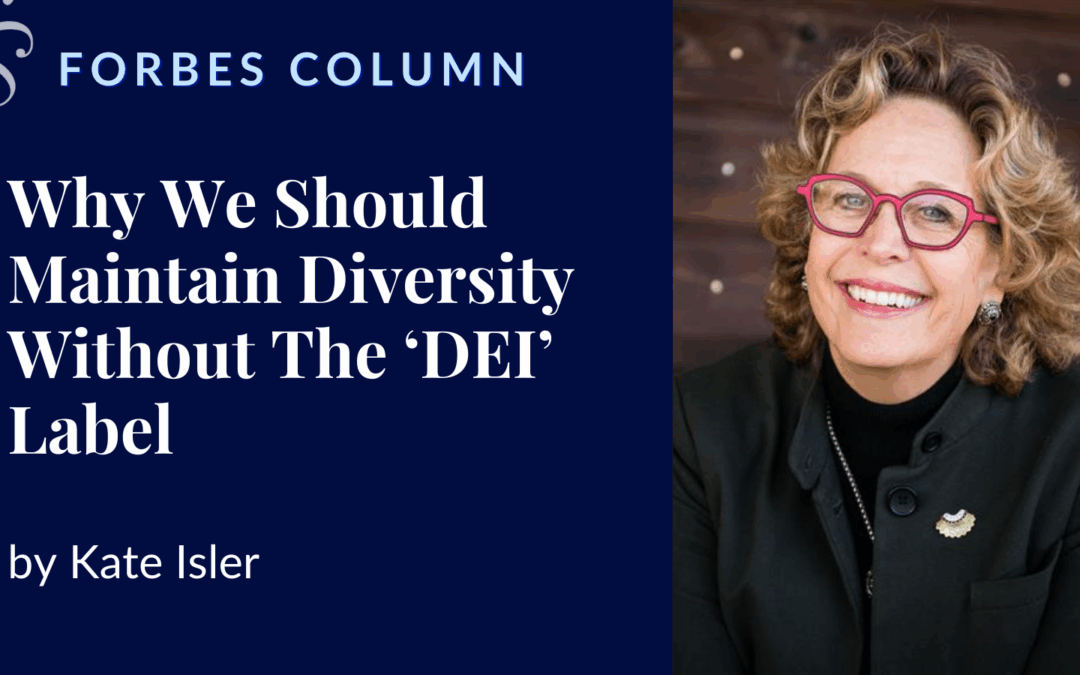
by Eva Glassman | Sep 9, 2025 | Blog, Featured
By Kate Isler | TheWMarketplace | C200 Member since 2021
How do businesses sustain diversity when the term DEI has become politically charged?
C200 Member Kate Isler explores this challenge in her latest Forbes article, sharing actionable strategies for building inclusive, high-performing teams without relying on the DEI label. From aligning teams with customer demographics to embedding inclusive practices in leadership development, Kate shows that the mission hasn’t changed—just the language.
Read the full article here.
C200 is a 501(c)(3) nonprofit organization with a mission to inspire, educate, support, and advance current and future women entrepreneurs and corporate profit-center leaders. The views and opinions expressed in this article are those of the individuals quoted or featured and do not necessarily reflect the views, policies, or positions of C200.
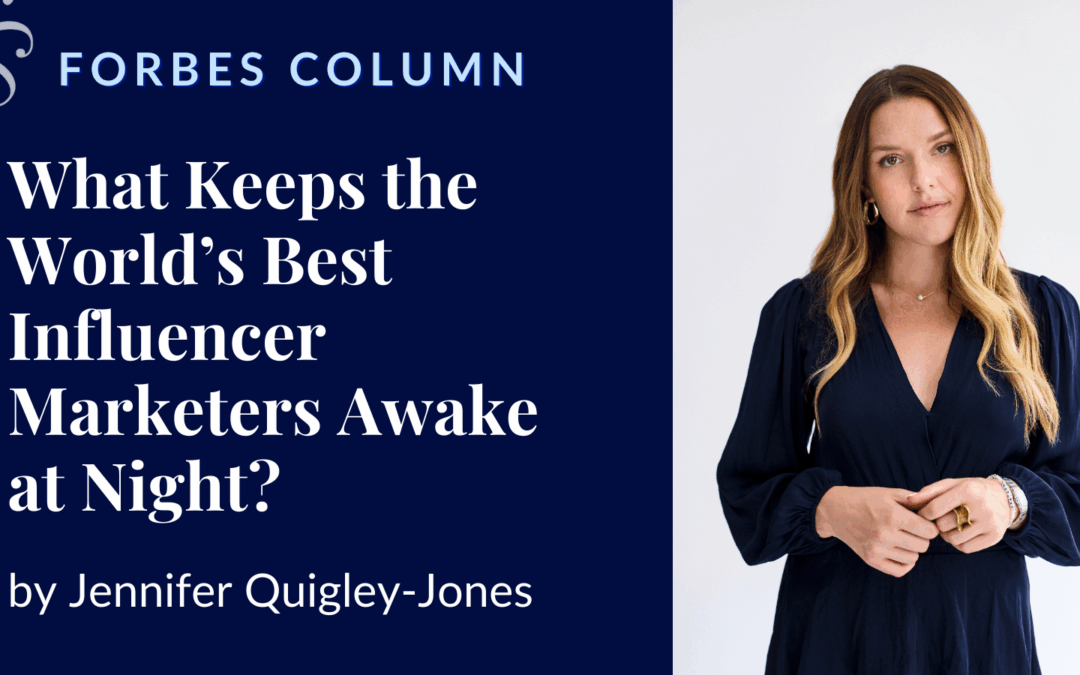
by Eva Glassman | Aug 21, 2025 | Blog, Featured
By Jennifer Quigley-Jones | Digital Voices | C200 Member since 2024
Scaling influencer marketing programs is one of the biggest challenges facing brands today.
In her latest Forbes article, C200 member Jennifer Quigley-Jones shares how marketing leaders are tackling this head-on: balancing scale with quality, measuring ROI across channels, and connecting authentically with audiences on platforms like Reddit, Twitch, and LinkedIn.
Drawing on insights from the inaugural Global Influencer Council and examples from brands like DoorDash and Surfshark, Jennifer shows what’s possible when strategy meets speed.
Read the full article here.
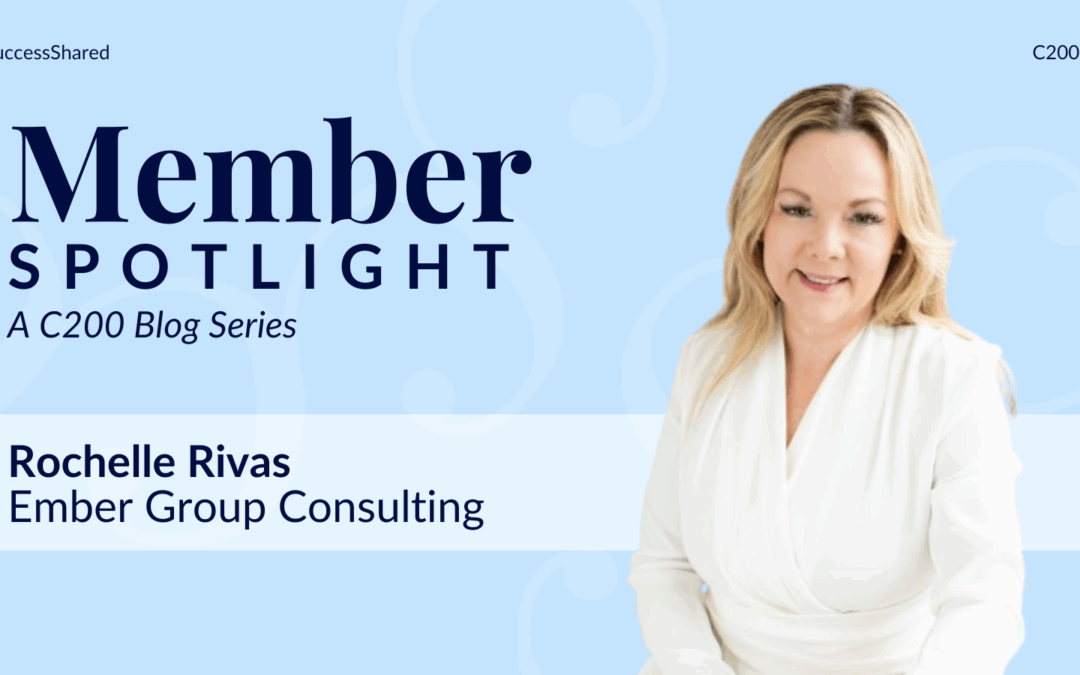
by Eva Glassman | Aug 19, 2025 | Blog, Featured
Rochelle Rivas is the Co-Founder and CEO of Ember Group Consulting, a global management consulting company with hundreds of employees. A self-described “corporate refugee,” Rochelle learned early in her career that she had an entrepreneurial mindset, craving environments where she could wear multiple hats, and no two days are ever the same. She believes the key to success is mastering your inner dialogue, because your thoughts show up in your reality. Rochelle has been a Member of C200 since October 2024.
Eva Glassman: Tell me about yourself and your company.
Rochelle Rivas: I’m a mom, first and foremost. Every breath I take is for my kids; they’re identical twins, twenty-four, and my best friends. Secondly, I’m a philanthropist. Then, I’m a business leader.
I put those in that order because I believe that if you’re doing good for the community and supporting the people around you, it’s good for your business. I’ve taken that approach for the bulk of my professional career so that people around me would take a similar approach.
My company, Ember Group Consulting, is a management consulting company. This is my second company; I sold my first one, DARTON GROUP, in 2019 after eleven years. After selling DARTON GROUP and before founding Ember Group Consulting, I held an executive role at North Highland, a mid-size consulting firm. While I was there, I started to have the desire to run a business again, better and different—that’s what led me to create my current business.
It’s been about a year since we founded Ember Group Consulting, and it’s been really fun. A lot of work, but fun. Some things have been easier than the first time, and some things have been more challenging, but that’s indicative of the world we live in right now.
EG: Can you speak more to both the exciting and chaotic aspects of running your current company?
RR: I love sitting across from somebody who has a really complex issue and being able to look back at them and say, “I can help you.” There is a great sense of gratification in that. It’s also important, because our clients are primarily Fortune 500 companies. Companies are starting and stopping quicker than ever before because of the economic and geopolitical uncertainty in our world right now. Sometimes, companies need to bring in outside resources for a fresh perspective on things. Helping companies navigate these issues is something we pride ourselves on in the consulting industry.
EG: I’m curious about your career journey. What was your background at the beginning of your career? Is that in line with how your career journey went?
RR: I always thought I would wind up in an HR role, but I also didn’t want to be confined to one kind of role. At twenty-nine, I had a huge corporate job in the retail environment with tons of responsibility, but it was very mundane. Today, I call myself a corporate refugee, because I knew that being in corporate America was not my desired state.
Running my own company means some days I get to be HR advisor, some days business strategist, some days operations strategist, and so on. I landed here because I knew I didn’t want to do the same thing every day; I’m just not hardwired that way.
EG: What are the factors that led to your success today?
RR: 2008 was a very pivotal year for me, for a lot of reasons. It was a very uncertain time in the world, but also in my life. I had moved my family from Chicago and left my corporate job. It got to a point where I had so much self-doubt that I refused to let myself feel that way anymore. One day, I looked in the mirror and said, “You can do this.” And then I continued to do it each and every day, until I turned my inner dialogue from negative to positive.
I tell people this all the time; the most critical thing you can ever learn how to do is talk to yourself. The way your thoughts manifest determines your reality. If you’re doubting yourself in your head, it shows up in your life. This is so important for women to know. Your self-talk matters in so many ways, whether it’s about your physical or mental attributes.
All this to say, I believe I’m successful because I learned how to talk to myself in a very positive way, and part of that was repeating to myself things like, “You’re not giving up. You achieved this. You deserve to be here.” As I’ve gotten more mature in my career, I don’t let people influence my self-talk or make me feel like I don’t belong.
When people talk about Imposter Syndrome, I actually think that feeling comes from poor self-talk. If I walk into a room full of executives—people who are my peers—it’s a fact that I’m not an imposter. The reality is that I’m right where I belong. If I were to walk into a hospital wearing scrubs, I would be an imposter; I’m not a doctor, and I’m not trying to be.
EG: Your commitment to positive self-talk seems like such a basic thing, but you’ve made it clear that we don’t place nearly as much importance on it as we should.
RR: If you don’t do it, who will? No one else can do it but you.
It reminds me of this funny story. As I said earlier, I have identical twin daughters. When they were little, they would always fight and call each other ugly and other insults, and I would always say, “You know, you look just like each other. How can only one of you be ugly?”
EG: Can you tell me more about your journey to C200? How did you find out about us, and what made you want to join?
RR: Last year, I was invited to a private group event for board directors. Before going inside, I saw this lady walking through the parking lot—like a boss. I knew immediately that I needed to meet her. I introduced myself at the event, and we exchanged contact information and met for coffee down the line. That woman was Maryann Bruce.
As we got to know each other, she told me about C200. Maryann is an incredible ambassador for the organization. She offered to sponsor me through the application process.
EG: What a great story about our Chair Emeritus!
RR: I’ve never shared that story before! I still remember exactly what she was wearing in that parking lot. I was and still am so impressed with her—and such a fangirl.
EG: Other than emphasizing the importance of positive self-talk, what other advice do you typically share with women looking to advance their careers?
RR: When it comes to entrepreneurship, people really undervalue what it takes to succeed. I’ve actually talked many people out of starting a business. A lot of people think they can do it, but you have to ask yourself some serious questions, like: How long can you go without a paycheck? Can you put yourself or your family through that? If you find yourself with your back against the wall having to do payroll, how will you feel paying your employees before yourself? You should always be paying your employees first.
It might not be for you, or it may not be time yet. The success rate for startups is very low. I’ve had many people come back and thank me for laying out all the risks that come with it.
EG: To be an entrepreneur, you have to start with an idea. In that way, there is a large part of entrepreneurship that is idealistic. It seems like you’re bringing a very important element of realism to the discussion.
RR: To be an entrepreneur, not only do you have to be smart enough to mesh your dream with reality, but you have to be resilient enough. Resiliency is one of the key things to being successful, even beyond entrepreneurship.
I think the meaning of resiliency has become so misunderstood and overused. To be truly resilient means that you experienced an event—good or bad—and you got through it, not over it. You don’t become resilient after sitting in traffic. Resiliency is born from who you are during the event, not after.
EG: Did you have any women leaders, managers, or mentors along the way of your career journey? Who were the people who inspired you? Who did you connect with to find support?
RR: Early in my career, all my mentors were men. Later on in my career, I have found two or three women who have become my rocks when it comes to business decisions or bouncing ideas around.
When I was advancing in my career, it was my experience that women didn’t yield appropriately to other women. What I mean by that is, if it was me and another woman up for a role or promotion, someone had to yield to the other. If you’re a phenomenal leader, you’re going to yield and say, “You go for this.” I’ve yielded plenty of times in my career so that other women can get that opportunity to advance. I am a big proponent of that concept, because I believe that creates strong relationships and support networks between women in the workplace.
My hope is that younger generations will have a different experience and outlook than me. If there are enough examples around you of women rooting for each other versus being cutthroat, the better off we’re going to be for the future.
EG: I’m interested to know how you think about yourself as a “woman in business.” What does that mean to you? How does that affect the way you work and lead?
RR: In general, it’s a privilege to be in business and have a great product that people want. Being a woman in business is amazing, because we’re excellent critical thinkers who solve problems in very different ways than men.
When I speak with others about Ember Group Consulting, I talk about how our global consulting firm has hundreds of employees—and we happen to be women-owned. I’m wary of the risk of over indexing and I intentionally lead with my strengths. While being a “woman in business” or leading a “woman-owned business” is important, it doesn’t paint a full picture and can lead to others generalizing you.
EG: How do you like to spend your time outside of working?
RR: My daughters played Division One athletics all through college, which pretty much ruled our lives. Now that they are in graduate school, I find myself with much more free time on my hands.
I currently live in Charlotte, and I’ve been on a lot of amazing nonprofit boards that really drive change in our communities in issues like public health and women’s initiatives—things that are important to me.
I love spending time with friends. I love being outside—not doing anything physical but laying out on the back porch in the summer. You won’t see me hiking out in the mountains. Hands down, my absolute favorite place to be is at the beach, reading a book.
EG: Why C200? What has been your experience so far as a Member? What are you looking forward to?
RR: It’s been fantastic. There’s a level of authenticity that you find among C200 Members that I haven’t found anywhere else.
Business leaders like myself get invited to do a lot of things, and honestly, too many of those things don’t end up being worthwhile. I’ve attended plenty of webinars where afterwards, I felt like, “Well, I just lost an hour.” That isn’t the case at C200. The content and the way that leaders show up in this community has been incredibly impressive.
You get to a certain point in your career where you really have to spend your time wisely, and my time is well-spent at C200.
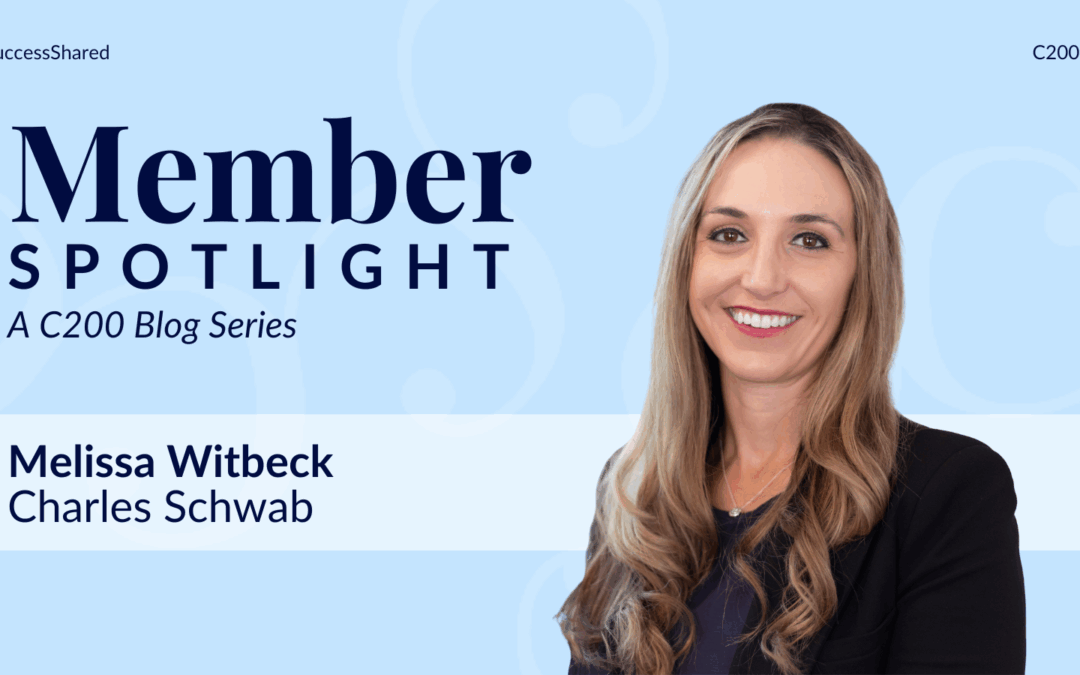
by Eva Glassman | Jul 17, 2025 | Blog, Featured
Melissa Witbeck is a VP at Charles Schwab, managing a multi-billion-dollar portfolio and working with many clients navigating the Great Wealth Transfer. Melissa is passionate about women’s financial literacy and the potential economic and philanthropic impact women can have as more wealth passes into their hands. Outside of work, Melissa enjoys outdoor activities and traveling with her family. Melissa has been a C200 Member since 2025.
Eva Glassman: As a VP of Charles Schwab, what are your responsibilities? What are things that you love about what you do, and what are some more challenging aspects?
Melissa Witbeck: I manage a $100 billion portfolio, so it’s very dynamic from day-to-day, from building strategy, leadership, focusing on meaningful impact, to making sure my team and our clients receive the best of Schwab. No two days are ever the same, which definitely keeps me on my feet.
When I wake up every day, I’m grateful to have the ability to shape our vision into reality and see ideas come to life. Watching our teams thrive is incredibly rewarding.
The most challenging part is keeping a fine balance between long-term strategic planning and the day-to-day operational needs of running this kind of portfolio.
EG: Did you always want to go into financial services? Take me through your career journey.
MW: When I was a kid, I actually wanted to be an orthodontist. I was the oldest child, raised by a single mom. When I was sixteen, my grandfather passed away and we received a reasonable inheritance. As the oldest child, my mom would bring me along to the financial advisor meetings for managing the inheritance.
None of the advisors asked us about our goals or what we wanted to accomplish; they just wanted to take this money and get it invested. Even then, I knew that wasn’t right. That was when I knew I had to go to college for finance. I needed to understand how this all works.
To this day, it’s personally important to me to make sure that women are comfortable and understand finances, so that when circumstances change—be it their husbands pass and they’re inheriting the money or unfortunately, they get divorced—they know how to manage the money so they can take care of themselves, their future potential, their children, and/or how they want to donate it.
All that being said, my career path has not been linear, and I wouldn’t have it any other way. I have taken on different roles within the same industry, because I was always curious and had a desire to solve problems. When I see a problem coming up, I have this strong sense of desire to understand. How did we get there and what can we do to solve it? How can we provide a better experience?
I didn’t imagine I’d be where I am today. It wasn’t something I sought out to do, but each chapter along my journey has prepared me for it. The biggest factor in my success has been a combination of being resilient, being open to change, and surrounding myself with people who challenge and inspire me.
EG: Who are some of those people who have inspired you over the years?
MW: I had no formal mentorships early in my career, but I sought out examples of leaders where I could find them. Over time, I’ve been fortunate to be mentored and supported by strong, thoughtful women who were willing to be authentic with me about their experiences, and in turn, I could share with them what I was experiencing in my career. They gave me the strength to keep pursuing my dreams and the opportunities that were given to me. These women embody courage, clarity, and compassion when they lead. Those are the types of people I’m drawn to and who I want to emulate.
EG: Speaking of seeking out women leaders, how did you discover C200? What made you want to join?
MW: I feel so lucky. I was introduced to C200 through a trusted colleague who knew that I was looking to engage more deeply with a community of senior women leaders. I’ve had the fortune of crossing paths with several C200 Members before joining myself. There are all sorts of networking groups out there, but what stands out to me about C200 is the authenticity and generosity of the Members.
At C200, it’s not about titles or achievements. What’s profoundly different about C200 is the connections, wisdom, and desire to share and lift one another up. All of us are super busy, but all of us are builders and lifters, and will take the time to do so with each other.
EG: You are very involved at Charles Schwab in advancing the next generation of women leaders in the company, and I know that part of your work is in the Great Wealth Transfer. So, what does being a “woman in business” mean to you? How do you apply that thinking to what you do?
MW: A woman in business means embracing both the responsibility and the opportunity to lead with authenticity. It’s about creating an impact and space—not only for yourself, but for others who haven’t always been at the table. In every meeting that I hold, whether it’s hiring decisions or mentoring others, I try and bring in other perspectives or challenge norms that need to evolve.
The reason I’m so passionate about this is because the wealth space is changing. Traditionally, patriarchs have held the money, but in this very moment, the money is transferring to the matriarchs—the women. Men are passing away before their spouses, and the money gets transferred to the women, and then it will pass down to the children.
I’ve traveled across the country to speak with these wealthy families, and I ask the matriarchs, “What are you going to do with the money once it passes to you?” Time and time again, they talk about how they’re going to bring their children into the conversation, and as a family, they’re going to work together. This creates a much different experience than we have seen in the past.
I’m very excited about this shift, because we are already seeing what women do once they have money. They turn around and they help others—not just their own family, but they’re helping for the greater good. Melinda Gates is a clear example of this shift.
This gives me so much hope for the future. We need to be prepared and ready for a new type of client. Getting ready for the Great Wealth Transfer requires strategy, and I’m very optimistic about where we’re going in the future.
EG: When you are not working with clients and informing people about preparing for the Great Wealth Transfer, how do you spend your time? What do you like to do outside of work?
MW: I love spending time with my family. When we are together, we love to explore the outdoors, be it surfing or hiking or playing baseball.
I’m also very passionate about community initiatives, including youth development. I am part of a local miracle league here in the Dallas-Fort Worth area that provides opportunities to children who are physically or mentally disabled to get to play baseball. We are able to provide an opportunity for them that they wouldn’t otherwise get to experience, and that brings a ton of joy to me. I’m also on the board for the American Heart.
Whenever I can, I love to travel and experience new cultures and perspectives. When we can step outside and look at how other cultures do things, I believe that truly makes us better leaders.
EG: Is there a recent trip that you’ve been on that was particularly insightful or inspiring?
MW: I went to Paris right before the 2024 Olympics. What intrigued me was their slower pace of life; over there, it’s totally normal for them to sit in a restaurant for two hours. I was really taken aback by that because, in American business culture, we are “Go, go, go” all the time. The culture in Paris reminded me that, in reality, it’s very important to slow down and build relationships; a two-hour business lunch could make a huge difference, versus cramming everything into an hour. Seeing that really shaped and defined what’s important to me as a leader—and it also reminded me how important it is to spend more time with the people around me.
EG: What is your advice to aspiring women business leaders to advance their careers? What would you say to those looking to join C200 one day?
MW: My advice is to be bold in your ambition but grounded in your values. As women leaders, we have to build real relationships. While we have to advocate for ourselves, we also have to find people who will advocate for us when we’re not in that room.
We have to stay curious; the learning never stops. I’m the first to jump at learning opportunities, because I want to hear other perspectives. It takes real confidence to be open to other perspectives. If a person’s viewpoint is different than mine and has expanded my own, I feel okay to change my answer. When we collectively share our ideas, we create something even better.
For those who are aspiring to join C200, focus on your impact. C200 is more than just success—it’s about how you use your success to elevate others.
EG: It’s just like our motto, Success Shared—people don’t achieve success by themselves. It has to involve a network or community in support of one another.
MW: C200 represents community, leadership, and legacy. It’s a place where extraordinary women come together—not just to network, but to genuinely support and grow one another. It’s a source of inspiration and a call to action to give back, to mentor, and to lead with intention.
As a newer Member, I am most excited about being with women who believe the same as me. It’s rare to be able to connect and engage with people who have similar values to me, and especially these values.
We may not all have similar personalities, but everyone I’ve spoken to is comfortable with hearing others’ perspectives and being confident and open enough to make the changes necessary for the greater good.
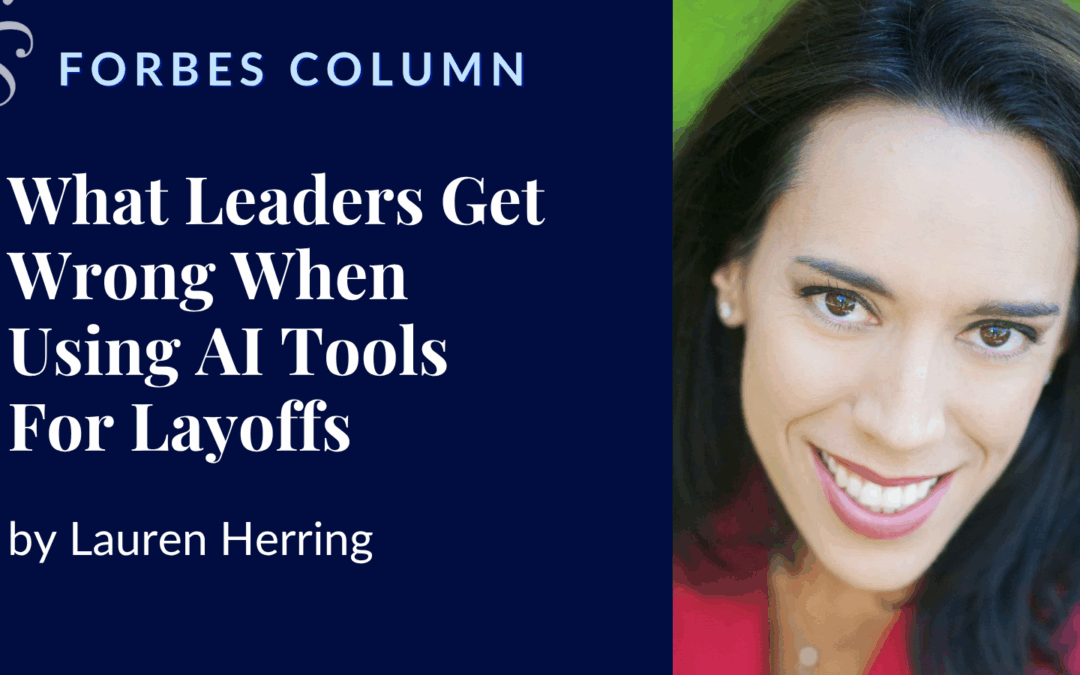
by Eva Glassman | Jul 9, 2025 | Blog, Featured
By Lauren Herring | IMPACT Group | C200 Member since 2009
What happens when AI enters one of the most human parts of leadership — layoffs?
C200 Member Lauren Herring, CEO of IMPACT Group, explores this complex question in her latest Forbes article. As AI tools become more common in workforce decisions, Lauren shares how companies can avoid common missteps and use technology to support, not replace, human judgment.
Key takeaways from the article:
- Poor data and bias can lead to flawed or unfair layoff decisions
- AI should never operate without human oversight in emotionally charged moments
- Outplacement is more than a benefit—it’s a signal of respect
- Responsible use of AI can help protect morale, reputation, and even open the door to redeployment
This is a must-read for leaders thinking about how to combine innovation with empathy.
Read the full article here.

